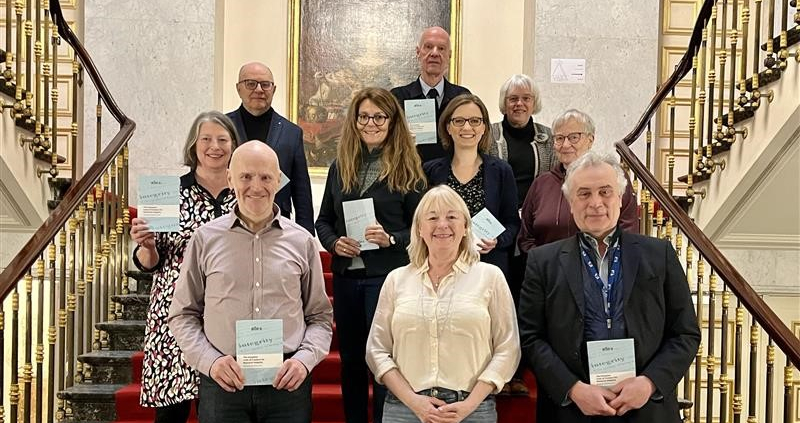ALLEA Permanent Working Group on Science & Ethics Meets in Brussels to Discuss Emerging Topics in Research Ethics
On 2 and 3 April 2024, the ALLEA Permanent Working Group on Science & Ethics (PWGSE) met in Brussels to reflect on the experiences and impact of recent activities, discuss emerging topics in research ethics and research integrity, and scope future activities.
The meeting was generously hosted by the Royal Flemish Academy of Belgium for Science and the Arts (KVAB) at the neoclassical Academy Palace in Brussels. It brought together research ethics and integrity experts from ALLEA Member Academies under the chairwomanship of Dr Maura Hiney (Royal Irish Academy).
The European Code of Conduct for Research Integrity: growing impact
A central and recurring theme in the meeting was the revised edition of the European Code of Conduct for Research Integrity, which was developed following extensive consultation with European research stakeholders. Since its publication in June 2023, the revised Code has been steadily finding its way into the research system, with already 12 translations released on the ALLEA website, and many more to come in the coming weeks and months.
In addition, the Code prompts the development and update of national and institutional codes of conduct and is increasingly referenced in discipline-specific guidelines and (European and national) policy documents. For example, the Code inspired detailed general and field-specific guidelines for responsible Open Science, developed by the Horizon-funded ROSiE (Responsible Open Science in Europe) project, as well as the recently published guidelines on responsible use of AI in research by the European Research Area Forum.
The future of research ethics and integrity within EU-funded projects
The working group welcomed Isidoros (Dorian) Karatzas, Head of Sector for Ethics and Research Integrity at the European Commission Directorate Research & Innovation (DG-RTD), to the meeting for an extended discussion on the impact of the Code and the future of research ethics and integrity as part of EU-funded projects. Joint reflections identified additional outreach strategies, both with Academies and the wider research community, to further improve awareness and knowledge on good research practices. They also pinpointed a number of clauses from the Code where the PWGSE may be able to support researchers and their organisations by providing further context, help with interpretation, and additional resources.
Agenda highlights: insights and initiatives discussed
Further items on the agenda included reflections on and lessons learnt from the group’s recent publication on Predatory Publishing, as well as a joint statement with the ALLEA Working Group on Science Education on Scientific Literacy for Young Learners. In addition, the group discussed possible tensions that can arise when academic researchers collaborate with or are funded by the private sector, a request for feedback by the European Commission on support for projects with dual-use potential, and progress of ALLEA’s various activities as part of the Coalition for Advancing Research Assessment (CoARA).



